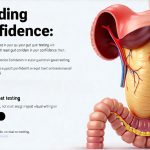Digestion isn’t merely a physiological process; it’s a fundamental expression of our relationship with nourishment, safety, and even self-care. For many, this foundational connection is fractured, resulting in a pervasive sense of unease around food – anxieties about bloating, sensitivities, or simply a lack of trust in what happens inside the body after eating. This isn’t always about diagnosed conditions; it’s often a subtle erosion of intuitive eating and a disconnection from internal cues, born from restrictive diets, stressful life events, or even just an overwhelming amount of conflicting nutritional information. Rebuilding your trust is about more than identifying food intolerances; it’s about reclaiming agency over your relationship with food and restoring a sense of calm around mealtimes.
The consequences of lost digestive trust are far-reaching. Beyond physical discomfort, chronic anxiety surrounding food can lead to disordered eating patterns, social isolation, and a diminished quality of life. It fosters a cycle where fear dictates choices, leading to further restriction and ultimately exacerbating the very symptoms individuals are trying to avoid. The goal isn’t necessarily perfect digestion – that’s unrealistic – but rather developing a resilient system capable of adapting to different foods while minimizing distress and fostering a positive emotional connection with eating. This requires moving beyond rigid rules and embracing a more nuanced, body-centered approach.
Understanding the Roots of Digestive Distrust
The loss of digestive trust rarely happens in isolation. It’s typically built up over time, often stemming from experiences that create negative associations between food and discomfort. One common catalyst is restrictive dieting. When we drastically limit certain food groups or adhere to overly strict rules, we essentially train our bodies to perceive those foods as threats. This heightened sensitivity can lead to increased reactivity even when reintroducing these foods later on – a phenomenon sometimes referred to as “reactivity rebound”. The body becomes hypervigilant, searching for potential danger in every bite.
Another significant contributor is stress. The gut and the brain are intimately connected via the gut-brain axis. Chronic stress disrupts this communication pathway, impacting digestion, motility (the movement of food through the digestive tract), and even the composition of our gut microbiome – the trillions of bacteria residing in our intestines. This disruption can manifest as bloating, constipation, diarrhea, or a general feeling of unease after eating. Furthermore, emotional experiences surrounding food – perhaps negative comments about body image or restrictive family rules around mealtimes – can also contribute to a sense of distrust and anxiety. Digestive trouble can often be linked back to stressful events.
Finally, the sheer volume of conflicting nutritional advice available today plays a role. Every week seems to bring a new “superfood” or demonized ingredient, leaving individuals feeling overwhelmed and confused. This constant bombardment of information can erode confidence in one’s own intuition and lead to a reliance on external rules rather than internal cues. Rebuilding digestive trust requires acknowledging these underlying factors and shifting the focus from restriction to gentle exploration.
The Path to Reclaiming Digestive Wellbeing
The process of rebuilding digestive trust isn’t about finding a “cure” or eliminating all potential triggers; it’s about fostering a more compassionate and intuitive relationship with food. This begins with self-awareness – paying attention to how different foods make you feel, not just physically but emotionally. Keeping a food and mood journal can be incredibly helpful in identifying patterns and uncovering hidden anxieties. However, the emphasis should be on observation rather than judgment; avoid labeling foods as “good” or “bad”.
A crucial step is gentle reintroduction. If restrictive dieting has played a role, gradually reintroducing previously eliminated foods – starting with small amounts – can help desensitize the digestive system and rebuild tolerance. This isn’t about forcing yourself to eat something you dislike; it’s about cautiously exploring whether your initial fears are warranted. It’s also important to prioritize mindful eating – slowing down, savoring each bite, and paying attention to fullness cues. This allows the body to properly digest food and reduces the likelihood of overeating or experiencing discomfort. Finally, addressing underlying stress through techniques like meditation, yoga, or therapy can significantly improve digestive function and overall wellbeing. Food rituals can also help ease anxiety around mealtimes.
Cultivating Gut-Friendly Habits
A healthy gut microbiome is fundamental to optimal digestion and a strong immune system. While there’s no one-size-fits-all approach, several habits can support microbial diversity and resilience. – Incorporating prebiotic foods – such as onions, garlic, bananas, and asparagus – provides nourishment for beneficial bacteria. – Consuming fermented foods – like yogurt, kefir, sauerkraut, and kimchi – introduces live cultures directly into the gut. – Prioritizing fiber-rich foods – fruits, vegetables, whole grains, and legumes – supports regular bowel movements and promotes a healthy digestive environment.
It’s important to note that introducing these changes gradually is key. Suddenly increasing fiber intake, for example, can actually exacerbate bloating and discomfort. Listen to your body and adjust accordingly. Additionally, minimizing processed foods, sugar, and artificial sweeteners can help reduce inflammation and support a more balanced microbiome. Remember, gut health isn’t about eliminating entire food groups; it’s about nourishing the beneficial bacteria that reside within. Understanding food energy patterns can help you make informed choices.
Reconnecting with Internal Cues
Many individuals have lost touch with their internal cues for hunger and fullness, relying instead on external rules or societal expectations. Relearning to trust these signals is essential for rebuilding digestive wellbeing. This starts by asking yourself: – Am I truly hungry, or am I eating out of boredom, stress, or habit? – What does my body tell me when I’m satisfied? Is it a feeling of fullness, lightness, or simply a lack of desire to eat more?
Practicing mindful eating can help sharpen these cues. Before each meal, take a few deep breaths and check in with your body. During the meal, pay attention to the texture, taste, and aroma of the food. Slow down and savor each bite. As you eat, periodically assess how full you feel. Stop when you’re comfortably satisfied, not stuffed. It may take time and practice, but gradually reconnecting with these internal signals can restore a sense of agency and control over your eating habits. Digestive delay is often the result of overanalyzing what you eat.
Addressing Emotional Eating & Food Anxiety
Food anxiety often stems from underlying emotional issues or past experiences. Identifying and addressing these root causes is crucial for long-term healing. This might involve exploring unresolved trauma, challenging negative self-beliefs, or developing healthier coping mechanisms for stress. If you suspect that emotional eating or food anxiety are significantly impacting your wellbeing, seeking support from a therapist or counselor can be incredibly beneficial.
It’s also important to practice self-compassion. Digestive issues can be frustrating and discouraging, but beating yourself up over them will only exacerbate the problem. Acknowledge your struggles, celebrate small victories, and remember that healing is a process – not a destination. Forgiving yourself for past dietary choices and embracing a more gentle, self-care approach are essential steps towards rebuilding digestive trust. Constipation patterns can sometimes be linked to anxiety surrounding food. Ultimately, the goal isn’t just to improve digestion; it’s to cultivate a loving and respectful relationship with your body and with food itself. Digestive recovery is also possible after illness.


















